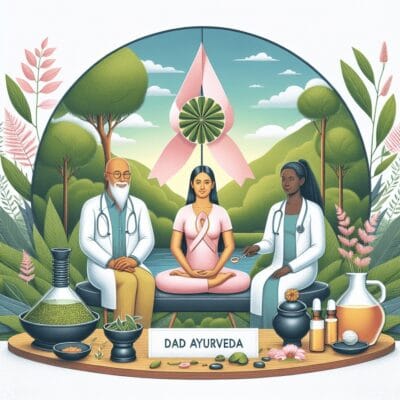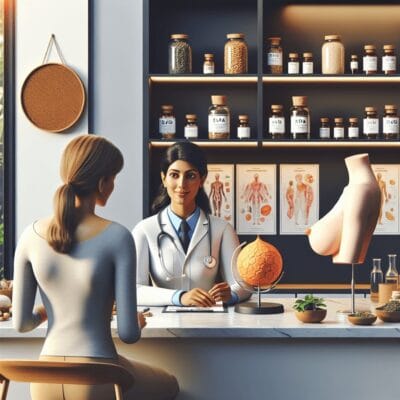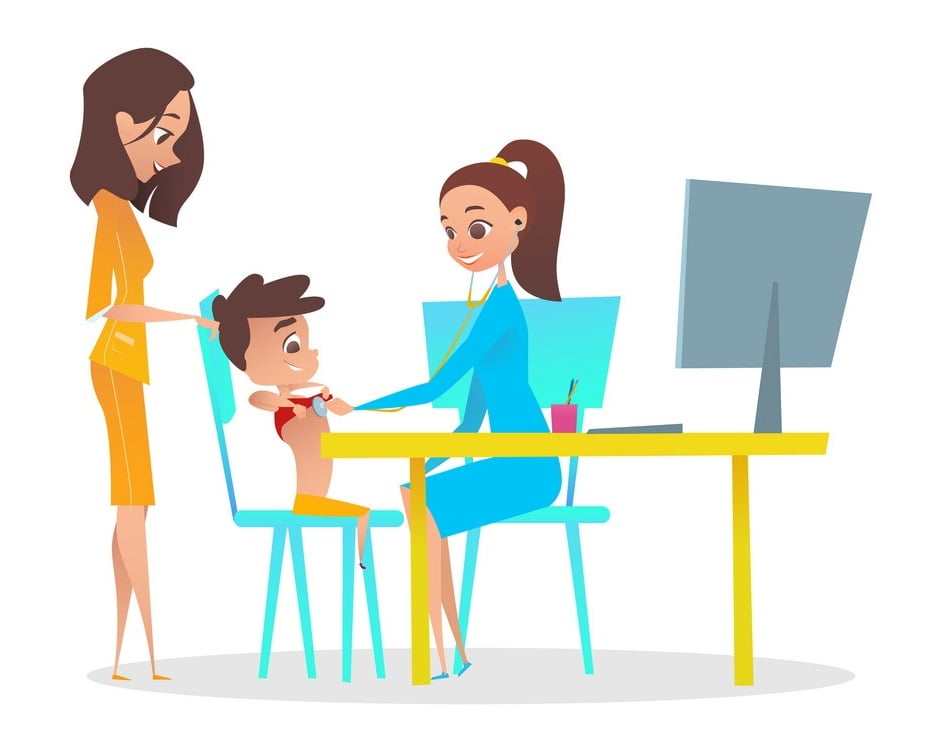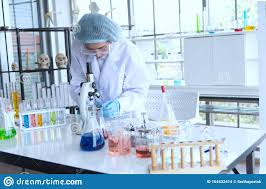Cancer
Breast Cancer Treatment
Introduction
Breast cancer affects millions worldwide, ranking as one of the most common cancers among women. It happens when cells in the breast grow uncontrollably, forming a tumor that can be felt as a lump or seen on an X-ray. With early detection and advanced treatment options, survival rates have significantly improved.
Understanding breast cancer treatment is crucial for anyone facing this diagnosis. DAD Ayurveda offers a unique perspective by combining traditional practices with modern medicine to improve treatment effectiveness and patient well-being. This approach focuses on personalized care, taking into account each patient’s specific circumstances and needs.
In this article, you will explore:
- The different types and risk factors of breast cancer
- Symptoms, early detection techniques, and treatment options available
- Personalized treatment plans and innovative therapies at DAD Ayurveda
- Supportive care during treatment and the role of clinical trials
This comprehensive guide aims to empower you with knowledge about breast cancer treatments, focusing on how DAD Ayurveda’s holistic approach can be a valuable ally in your healthcare journey.
Understanding Breast Cancer Types and Risk Factors
Breast cancer comes in different forms, each with its own characteristics that affect how it’s treated. Two specific types to be aware of are lobular carcinoma in situ (LCIS) and atypical hyperplasia.
Lobular Carcinoma in Situ (LCIS)
This condition is a marker indicating an increased risk of developing breast cancer. It involves abnormal cell growth in the breast lobules but doesn’t invade surrounding tissues.
Atypical Hyperplasia
This condition involves an accumulation of abnormal cells in the breast ducts or lobules, significantly increasing the risk of breast cancer over time.
Understanding genetic factors is crucial for assessing breast cancer risk. Mutations in the BRCA1 and BRCA2 genes are well-documented contributors to heightened risk levels. Individuals carrying these mutations may face a lifetime breast cancer risk of up to 70%. Genetic testing can help identify these mutations, enabling proactive management and surveillance.
Several common risk factors have been identified:
- Age: The likelihood of developing breast cancer increases as you age.
- Family History: A family history of breast cancer, especially among first-degree relatives, elevates risk.
- Obesity: Excess body weight has been strongly linked to increased risk, particularly post-menopause. Adipose tissue can produce estrogen, promoting hormone-receptor-positive breast cancers.
These insights into breast cancer types and risk factors underscore the importance of personalized treatment approaches like those offered by Disha Arogya Dham (DAD) Ayurveda. Tailoring interventions based on individual risk profiles ensures more effective management and prevention strategies.
Symptoms, Early Detection, and Treatment Options for Breast Cancer
Recognizing Breast Cancer Symptoms
Being aware of the common symptoms of breast cancer is crucial for early detection and effective management. Some symptoms to watch for include:
- A lump or mass in the breast or armpit
- Changes in breast size or shape
- Dimpling or puckering of the skin
- Nipple discharge or inversion
- Redness or scaling of the nipple or breast skin
Regular screenings such as mammograms and clinical breast exams play a vital role in identifying these symptoms early. Mammograms use X-ray technology to detect tumors that may not be palpable, while clinical exams performed by healthcare professionals can identify abnormalities through physical examination.
Performing a Breast Self-Exam
A breast self-exam is an effective tool for early detection, empowering you to notice changes in your breast tissue. Here’s how you can perform one:
- Visual Inspection: Stand before a mirror with shoulders straight and arms on your hips. Look for any visible changes such as swelling, dimpling, or changes in the nipple’s position.
- Physical Exam Lying Down: Use your right hand to examine your left breast and vice versa. With finger pads, make small circular motions covering the entire breast area from top to bottom and side to side.
- Standing/Sitting Exam: This can be done while showering. Use similar movements as when lying down, feeling for lumps or thickened areas.
Consistent monthly self-exams help track any new developments that should be reported to a healthcare provider.
Treatment Options at DAD Ayurveda
At DAD Ayurveda, we offer various treatment options tailored to different stages and types of breast cancer:
Fire Therapy
This includes procedures such as lumpectomy (burning of the tumour and some surrounding tissue by fire therapy), depending on the extent of spread of cancer.
Salt Therapy
We target the cancer cells remaining after surgery with salt therapy.
Ayurveda Medicine
This systemic treatment uses medicines to kill cancer cells throughout the body.
Hormone Therapy
Effective for hormone receptor-positive cancers by blocking hormones like estrogen that promote cancer growth.
Targeted Therapy
Focusing specifically on genetic abnormalities within cancer cells, such as HER2-positive types.
Immunotherapy
Enhancing the immune system’s ability to recognize and combat cancer cells effectively.
Each treatment plan at DAD Ayurveda is carefully tailored to individual patient needs, taking into consideration factors such as type, stage, and personal preferences. This personalized approach ensures optimal care and improved outcomes for patients navigating their journey through breast cancer treatment.
Personalized Treatment Plans and Innovative Therapies at DAD Ayurveda
At DAD Ayurveda, personalized treatment for breast cancer is essential. Each treatment plan is meticulously crafted based on individual patient factors, including:
- Type of breast cancer
- Stage of the disease
- Overall health and preferences
This tailored approach ensures that treatment aligns with the unique needs of each patient, leading to more effective outcomes.
The Importance of Multidisciplinary Teams
The role of multidisciplinary teams cannot be understated in this process. These teams consist of various specialists, including oncologists, radiologists, and nutritionists, who collaborate to develop comprehensive plans. Their combined expertise allows for a holistic view of each patient’s situation, ensuring that all aspects of care are considered.
Exploring Emerging Therapies
Emerging therapies are continuously being investigated within the field of breast cancer treatment. Some innovative approaches currently under research include:
- Targeted therapies that focus on specific genetic markers
- Combination treatments utilizing multiple modalities for enhanced effectiveness
- Immunotherapies designed to harness the body’s immune response against cancer cells
These advancements not only expand the arsenal of available treatments but also offer hope for improved management and outcomes for patients undergoing breast cancer treatment at DAD Ayurveda.
Supportive Care During Treatment and Clinical Trials Participation
Supportive care for breast cancer patients is vital in enhancing the overall treatment experience. At DAD Ayurveda, the focus is on providing comprehensive supportive care that addresses both physical and emotional needs. This approach helps manage symptoms such as fatigue, pain, and nausea, ensuring a better quality of life during treatment. The integration of holistic practices with conventional therapies aids in reducing stress and anxiety.
Participation in clinical trials at DAD Ayurveda offers patients access to innovative treatments while maintaining a robust support system to navigate potential side effects effectively. This dual strategy optimizes patient outcomes and satisfaction.
Conclusion: Taking Action Against Breast Cancer with DAD Ayurveda’s Comprehensive Approach
Breast cancer treatment requires a tailored strategy that considers individual patient needs. DAD Ayurveda’s comprehensive approach to breast cancer treatment emphasizes personalized care, integrating various therapies that align with each patient’s unique situation.
Consider the benefits of partnering with DAD Ayurveda in your fight against breast cancer:
- Personalized Treatment Plans: Treatments designed specifically for you
- Innovative Therapies: Access to cutting-edge treatments
- Supportive Care: Focus on improving quality of life
Take the first step towards effective management and support in your breast cancer journey.
FAQs (Frequently Asked Questions)
What is breast cancer and why is it important to understand treatment options?
Breast cancer is a common type of cancer that affects the breast tissue. Understanding treatment options is crucial as it empowers patients to make informed decisions about their care. DAD Ayurveda offers a unique approach to breast cancer treatment, focusing on personalized therapies tailored to individual needs.
What are the different types of breast cancer and their associated risk factors?
There are several types of breast cancer, including lobular carcinoma in situ and atypical hyperplasia. Genetic factors such as BRCA1 and BRCA2 mutations play a significant role in assessing the risk of developing breast cancer. Common risk factors include obesity, family history, and age.
How can I detect breast cancer early?
Early detection of breast cancer can significantly improve treatment outcomes. It’s important to be aware of common symptoms and to undergo regular screenings such as mammograms and clinical breast exams. Additionally, performing a breast self-exam regularly can help in identifying any unusual changes.
What treatment options are available for breast cancer at DAD Ayurveda?
DAD Ayurveda offers a variety of treatment options for breast cancer, including surgery (lumpectomy vs. mastectomy), radiation therapy, chemotherapy, hormone therapy, targeted therapy, and immunotherapy. Each treatment plan is personalized based on the patient’s specific type and stage of cancer.
What is the role of supportive care during breast cancer treatment?
Supportive care is essential throughout the treatment journey for breast cancer patients. It focuses on managing symptoms, improving quality of life, and providing emotional support. DAD Ayurveda emphasizes the importance of holistic care during this time.
How does DAD Ayurveda develop personalized treatment plans for breast cancer?
At DAD Ayurveda, personalized treatment plans are tailored based on individual patient factors such as the type and stage of breast cancer. A multidisciplinary team collaborates to create these plans, ensuring that all aspects of a patient’s health are considered. The clinic also explores emerging therapies within the field to provide innovative options.
Discover more from DAD Ayurveda
Subscribe to get the latest posts sent to your email.








